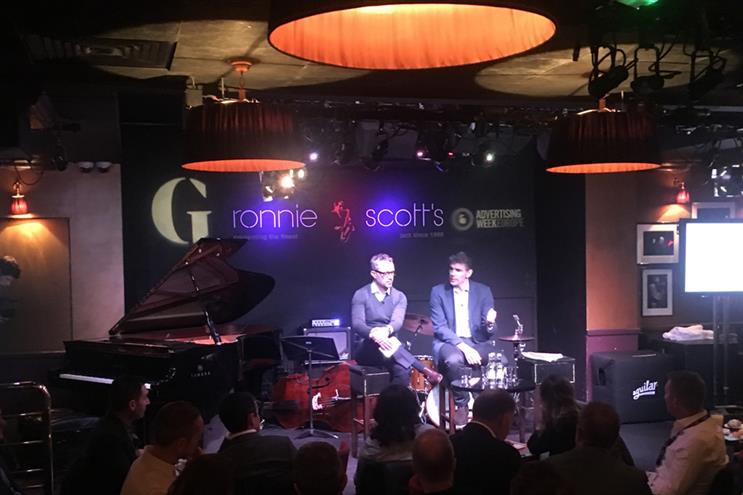
Matt Brittin told an Advertising Week Europe breakfast that Google wants to "make material progress" in the year ahead in helping trusted publishers "in terms of how do we make it easier for people to sign up and become a member [or paying subscriber]".
Brittin, the president of Google in EMEA, was speaking on-stage in conversation with Guardian Media Group chief executive David Pemsel, who has spurned a subscription paywall for The Guardian in favour of voluntary contributions and claims 850,000 paying members.
He maintained Google felt a sense of "responsibility" to support trusted content and said it helps publishers by giving them a share of advertising revenue when users click on news stories via the search engine, citing the fact that people look for news 10 billion times a month on Google.
"Where I want us to be and the technology industry to be is giving you a broader array of answers – in particular, subscription," he told Pemsel.
"Subscribing to content online is clunky. Joining up as a member [of The Guardian], frankly, I had to do it three times."
Brittin went on: "We’re working really hard, at the request of the industry, [to look at] what can we do to help make it easier to subscribe and also pay for individual pieces of content.
"We’ve only got one leg of the business model that is working [across the news industry]," he said, referring to ad revenue.
"You might argue that the advertising leg needs to work a lot harder to recognize quality and so on.
"If we can get subscriptions and also micropayments working – and other players will be investing in this too – I think you start to get a three-legged stool that can be a platform for independent journalism to thrive in future."
Pemsel said it would be "bloody helpful" if the big online platforms could help publishers on the mechanics of a subscription model.
The Guardian chief questioned Brittin about whether Google has done enough to support trusted content and combat brand safety after a series of scandals, including jihadist videos and paedophile comments on YouTube, last year.
In response to Pemsel’s question, Brittin said he felt Google would score "seven or eight out of 10" in terms of how it has cleaned up its platform.
Pemsel said that would not be good enough for The Guardian which depends on its editorial reputation.
Brittin pointed out the newspaper publisher produced only 500 articles a day online compared to YouTube where 400 hours of video are uploaded every minute.
The Google chief added that there are "only a tiny handful of impressions" where ads are served next to inappropriate content and insisted the company is making progress – for example, by dropping 300,000 advertisers from AdSense last year.
"This is town that became a metropolis," Brittin said, acknowledging that the internet has exploded in scale and it is taking time for the ad industry to come up with agreed standards.
Tim Lefroy, the former chief executive of the Advertising Association, who was in the audience, challenged Brittin, noting that Google has a tendency to "mark its own homework", rather than allow third-party verification.
"We want to be more transparent," Brittin replied. "But one of the challenges is we will always put the users’ data, security and privacy first.
"People wanted us to offer video verification on YouTube. One of the reasons it’s taking time to get to that is because there isn’t a system out there that could do that off the shelf, despite some claims in the industry, in a way that also respects the sacrosanct nature of the user data.
"I think we’ll get there. I think you’ll see more from us in terms of transparency and more clear controls for advertisers."
Brittin noted several times that Google’s primary business is search and helping users find information and that there are simple controls that allow people to opt out of all ad targeting.
He emphasised that Google is very different from social media companies, which make money from mining users’ personal data.
Those comments were pointed because Facebook is facing a storm of criticism over how up to 50 million users’ data were accessed by Cambridge Analytica, a research firm that worked on Donald Trump’s election campaign.




.jpg)
.jpeg)
